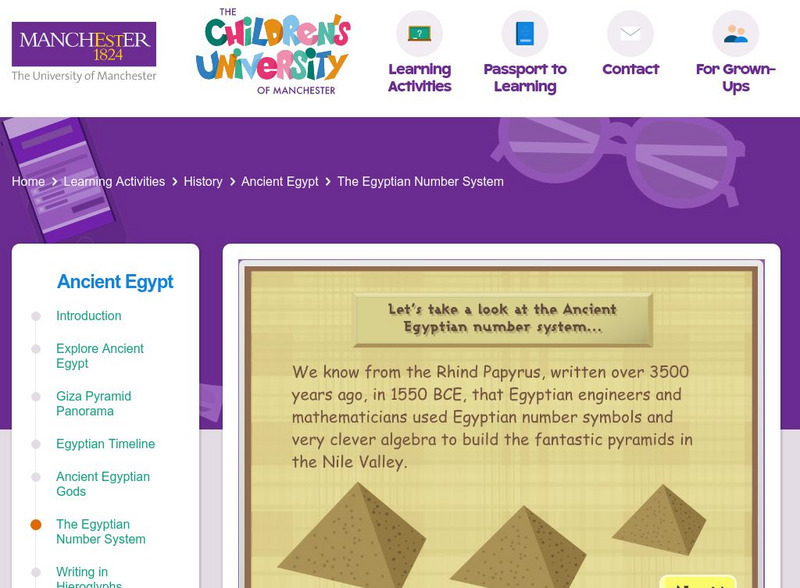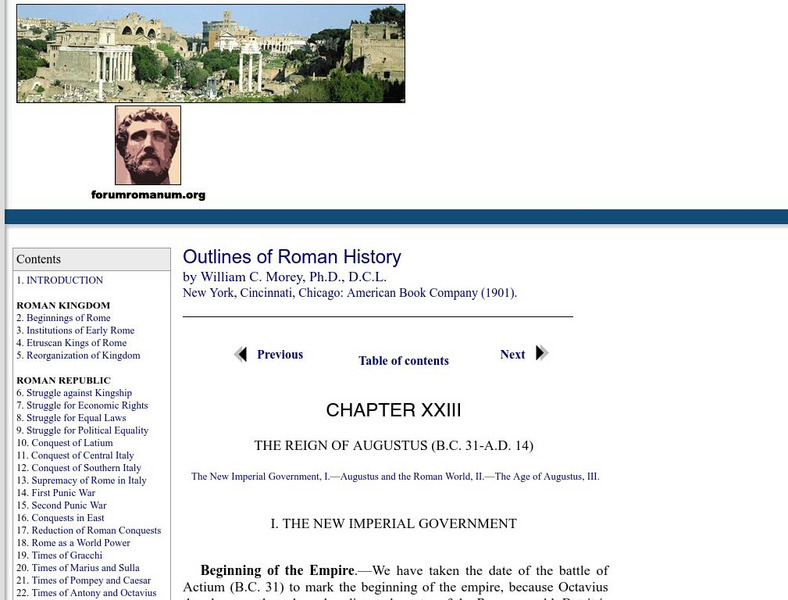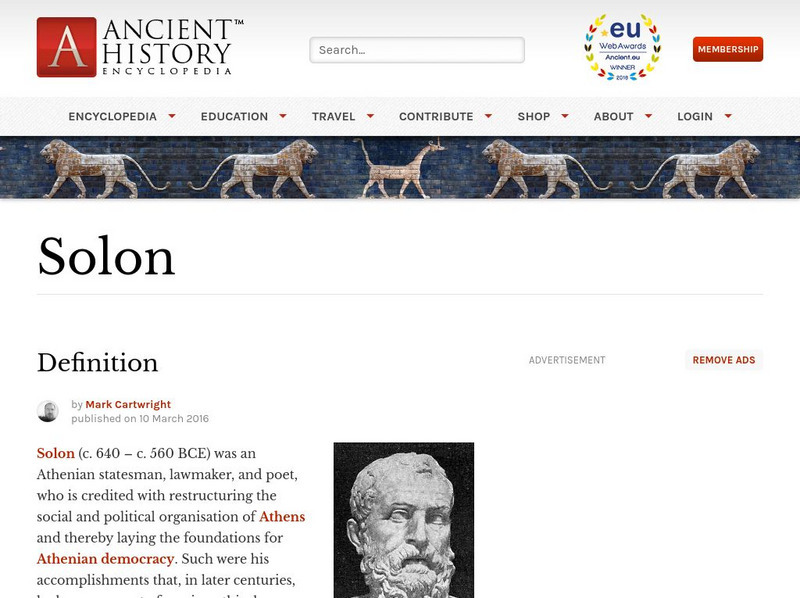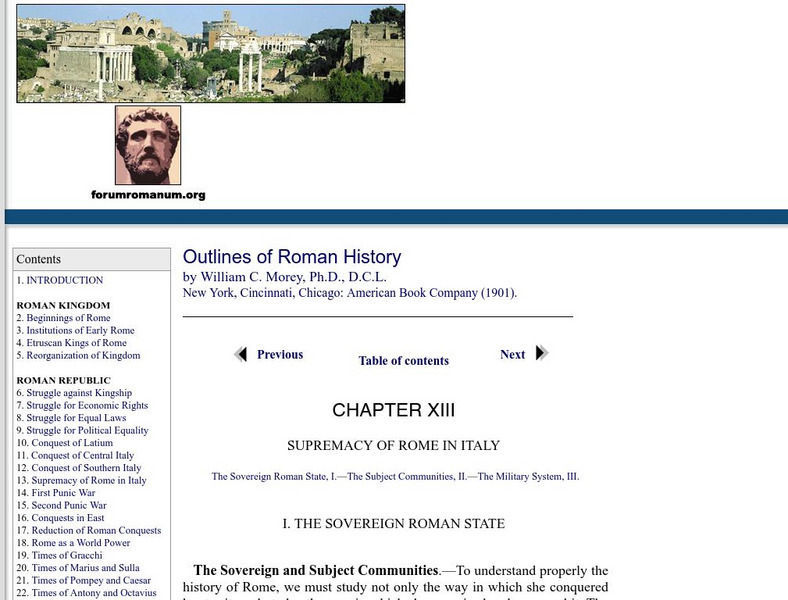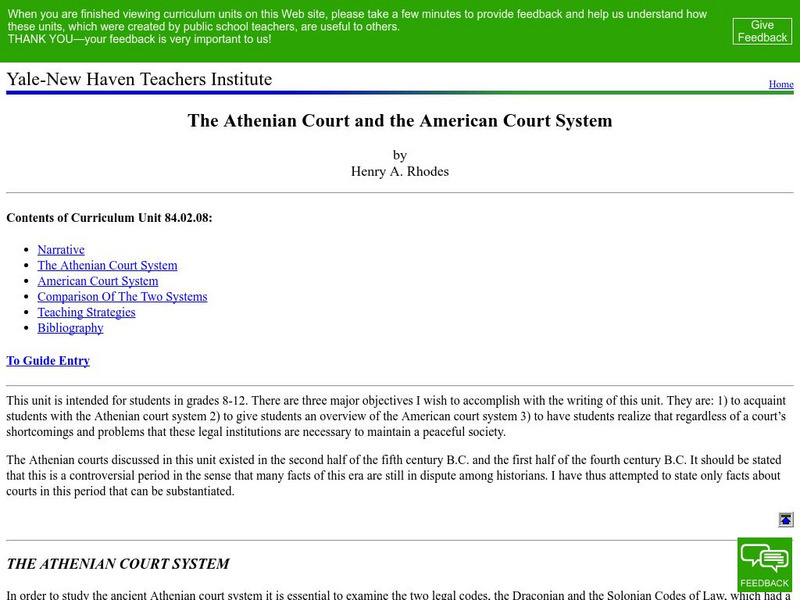Curated OER
The Golden Rule of Reciprocity
Students compare and contrast versions of the "Golden Rule of Reciprocity" as it is stated in several major world religions. They write their own version of the rule.
New York University
Institute for the Study of the Ancient World: Before Pythagoras
Exhibition of cuneiform tablets dating from 1900 B.C. demonstrates the mathematical knowledge of the ancient Mesopotamians.
University of St. Andrews (UK)
University of St. Andrews: Greek Number Systems
A comprehensive discussion of Greek number systems of the first millennium BC, including acrophonic and alphabetical. Includes examples demonstrating the lack of a truly unified system among the Greek islands.
Penn Museum
Penn Museum: Amarna: Ancient Egypt's Place in the Sun [Pdf]
The Amarna Period of ancient Egypt only lasted about thirty years but it is one of the most remarkable periods in Egypt's history. It began when the pharaoh Akhenaten, who was married to Nefertiti, built the city of Amarna in honor of...
Alabama Learning Exchange
Alex: Equations Gone Crazy
For this lesson, students will work with one-step and two-step equations. They will create and solve both types of equations. Students will also research ancient number systems and write, solve and check their equations using the ancient...
National Council of Teachers of Mathematics
The Math Forum: Ask Dr. Math: Babylonian Number System
Dr. Math takes on a question about the Babylonian base-60 math system, explaining how a sexagesimal system looks and works in comparison with our decimal (base 10) system.
University of Manchester
Children's University of Manchester: Ancient Egypt: The Egyptian Number System
Animated and interactive website from Children's University of Manchester on the Ancient Egyptian Number System. Students can explore the characteristics of ancient Egyptian numbers and use their math facts along the way.
Smithsonian Institution
National Air and Space Museum: Exploring the Planets: Ancient Times & the Greeks
In ancient times only five planets were known: Mercury, Venus, Mars, Jupiter, and Saturn. Learn about Greek astronomer Ptolemy's theory for the solar system that was to survive for fourteen centuries.
University of St. Andrews (UK)
University of St. Andrews: An Overview of Babylonian Mathematics
Information and examples of how the base 60 number system of the Babylonians worked in calculating problems similar to those we face today. Has a section comparing Pythagoras's theorem to Babylonian math.
The Washington Post
Ancient Cahokia: Metropolitan Life on the Mississippi
This article from the Washington Post gives a great description of Cahokia, one of the largest cities in the world before Columbus' contact with the New World. Read about how the great mounds were made, the trade networks established,...
Tour Egypt
Tour Egypt: The Ancient Egyptian Number System
This Tour Egypt site presents an easy-to-read account of ancient Egypt mathematics. Content explores the history and development of mathematics, how it was used, what helpful documents we have found that give us insight into what the...
Other
Webquest: A Creative Encounter of the Numerical Kind
Students research the history behind number systems and create their own systems in the role of a mathematics expert sent to help an imaginary society. A fun way to learn the importance of number systems.
Other
Aldokkan: Ancient Egyptian Mathematics
This site presents a brief history of ancient Egyptian mathematics.
Forum Romanum
Outlines of Roman History: Augustus and the Roman World
William Morey, in his 1901 textbook, explains Augustus' administration of the three parts of the Roman Empire, Rome, Italy, and the provinces.
Other
University of Illinois: The Early Centuries of the Greek Roman East
Read about the history of the Romiosini, or Greek Middle Ages and the development of the Greek-Roman east. The article is divided into two different sections. The first section includes the foundation of Constantinople as a means to...
Smithsonian Institution
National Museum of American History: Life in Ancient Greece : Coinage of Corinth
Corinth was an important center for commerce in ancient Greece, and thus one of the first to produce coinage. This site discusses the symbolism on Corinth's coins, and presents almost two dozen examples from the Smithsonian collection.
University of St. Andrews (UK)
University of St. Andrews: Mac Tutor History of Mathematics Archive
The University of St. Andrews, Scotland, presents hundreds of biographies of famous mathematicians, histories of math in various cultures, and interesting facts on the development of important math concepts. This is a huge reference....
World History Encyclopedia
World History Encyclopedia: Solon
Read about the life of Solon, one of the founders of Athenian democracy. Among the challenges he tackled were a serious debt problem among the less affluent, restructuring the social system, and developing a new law code.
Other
World History Project: Cuneiform
Read a brief history of cuneiform, the most widely used and historically significant writing system of the ancient Middle East. Also learn about how cuneiform spread from one ancient culture to another.
Discovering Egypt
Discovering Egypt: Egyptian Mathematics
A brief explanation of the numbering system of the ancient Egyptians, with great drawings and sample problems. Use this resource to introduce yourself to the symbols ancient Egyptians used in mathematics. There are some activities to...
Forum Romanum
Outlines of Roman History: The Supremacy of Rome in Italy
One of Rome's strengths was the way it governed the peoples it conquered. Find out the difference between the Romans, the Latins, and the Italians in terms of rights of citizenship.
Islami City
Islamic History: Arabic Numerals
Considers the origin of our "Arabic," system of number notation as probably having originated in India. Has illustrations demonstrating how much less cumbersome this system is than Roman, Egyptian, or Greek numeration.
Yale University
Yale New Haven Teachers Institute: Athenian Court and American Court System
A curriculum unit that examines Solon's reforms to the laws of Athens, the American court system, and then has young scholars compare the two court systems.
University of St. Andrews (UK)
University of St. Andrews: Egyptian Numerals
Discussion of early Egyptian number systems, including hieroglyphics and hieratic symbols and how they evolved.





